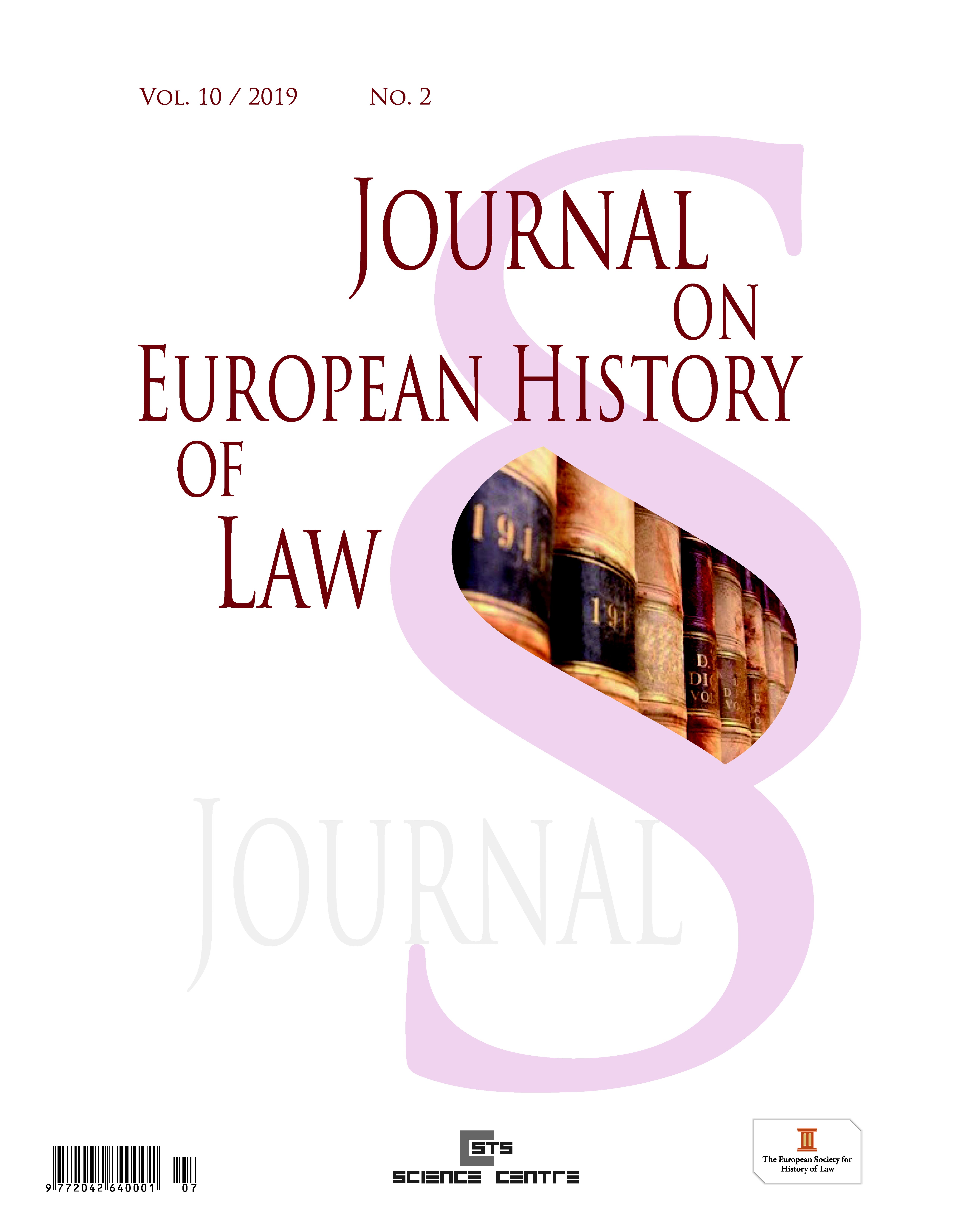The Forgotten Anarchist: Political and Legal Aspects of Alexei Borovoy’s Anarcho-Humanism
The Forgotten Anarchist: Political and Legal Aspects of Alexei Borovoy’s Anarcho-Humanism
Author(s): Andrey BystrovSubject(s): History, Law, Constitution, Jurisprudence
Published by: Evropská společnost pro právní dějiny, z.s.
Keywords: anarchism; law; individualism; authority; state; revolution; personality; liberty; society.
Summary/Abstract: The article examines the political and legal ideas of Alexei Borovoy, a Russian anarchist thinker of the early 20th century and author of the anarcho-humanism theory, which represents an original anti-state doctrine and rethinks the established positions of classical anarchism. Borovoy was influenced by a broad variety of ideas, and the evolution of his views can be conceptualized with a Hegelian triad: the Marxist thesis, the individualist antithesis, and the blending of personalistic and existentialistic attitudes with syndicalist practice as the synthesis. He presents anarchism as a constant striving towards an individual’s self-liberation through the negation of social reality; and this striving shall be seen as a universal condition for the development of all mankind rather than some social utopia project. By revealing the irresolvable antinomy between individual and society, his philosophy predicates the anti-finalist spirit of anarcho-humanism. Determined by the aforementioned beliefs, Borovoy’s criticism of the state and other “social fetishes” still deeply rooted in the human mind is followed by an analysis of his critique of anarchism itself and the debate with Kropotkin and other libertarian theorists. Borovoy postulates that the state is historically necessary and describes the range of factors that have brought it about. The criticism of the state system as the quintessence of organized power leads Borovoy to a detailed deconstruction of parliamentarism, the only objective of which is to preserve the status quo that can be summed up in the following six points: (a) the class nature of parliaments and the fictitious power of popular will; (b) the tyranny of the masses; (c) parliament’s subordination to the government; (d) the opportunism of political parties; (e) the hypocrisy of election procedures; and (f) non-professionalism of parliamentarians. Borovoy defines the law as actual relations formed in the course of life and originating mainly in the human mind that should be regarded as part of the psychosocial current of legal thought. From his criticism of the law that is made ex parte by those in power and becomes necessarily coercive and precluding voluntary acceptance of social obligations, Borovoy turns to the law based on conventional norms established by common agreement and commonly supported and accepted.
Journal: Journal on European History of Law
- Issue Year: 10/2019
- Issue No: 2
- Page Range: 86-100
- Page Count: 15
- Language: English

